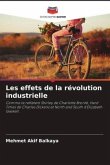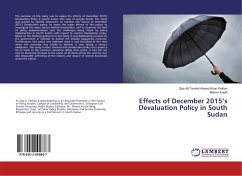The aim of this book is to explore the negative social, political and economic effects of industrialization and urbanization as reflected in Charlotte Brontë's Shirley (1849), Charles Dickens' Hard Times (1854), and Elizabeth Gaskell's North and South (1855). These novels, which have a lot in common, are diverse and engaged responses to an accelerating industrial age. In and through the Victorian Era, industrialization made a rapid progress that resulted in the polarization of the society into two camps, viz., the rich and the poor or the exploiter and the exploited. Although these two camps lived side by side, there was no communication between them, which inevitably brought class struggles along with it. The poor workers and their families almost had no social securities. Because of the economic recession and fluctuation or progress in mechanization, workers were laid off. These conditions became the story line of industrial novels, especially during the Victorian Era when novel reading was a popular activity, particularly among the middle class.
Bitte wählen Sie Ihr Anliegen aus.
Rechnungen
Retourenschein anfordern
Bestellstatus
Storno








